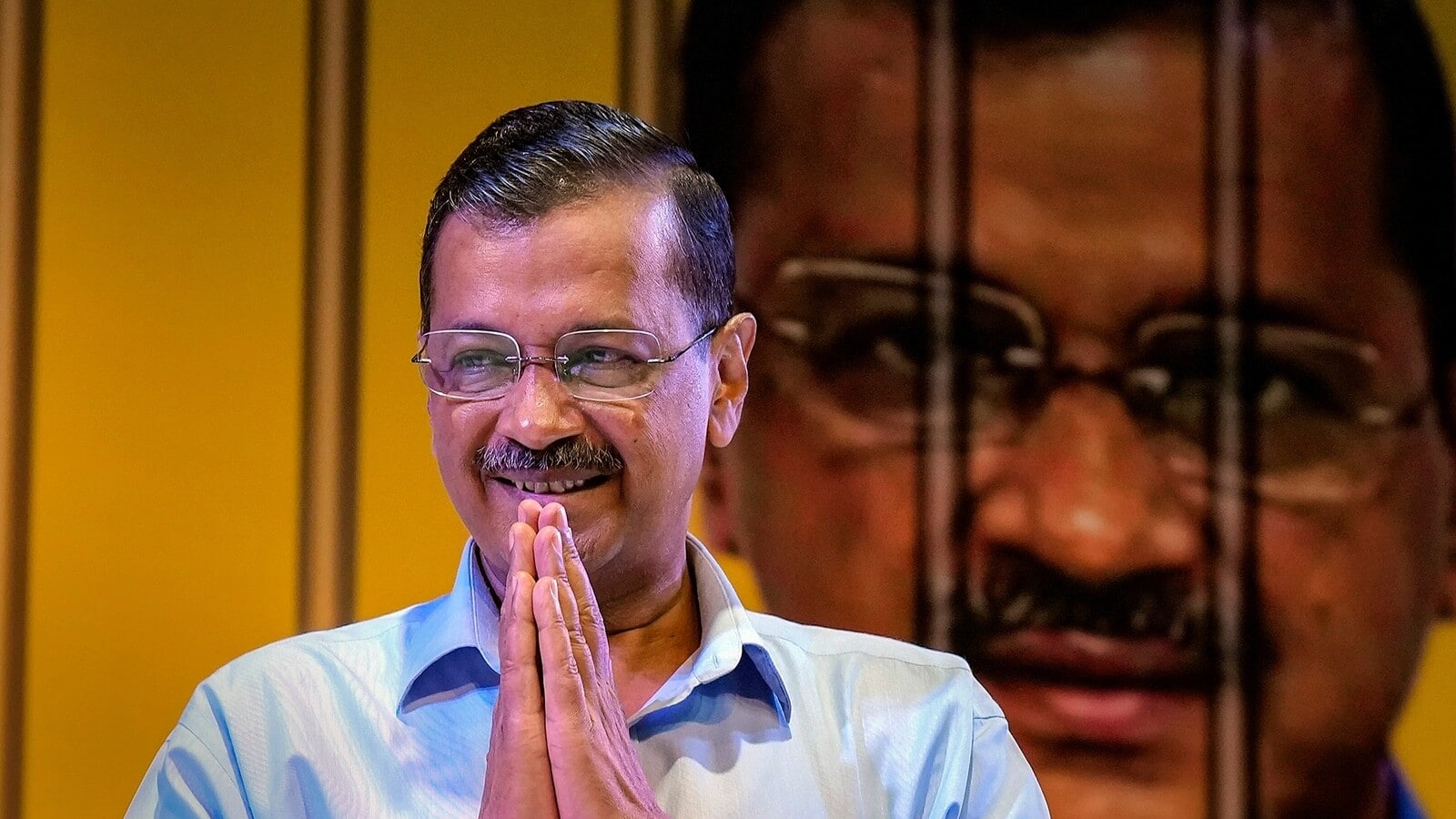
Will Kejriwal get bail? SC verdict today
What's the story
The Supreme Court will on Friday deliver its verdict on Delhi Chief Minister Arvind Kejriwal's bail petitions.
Kejriwal has filed two separate petitions one seeking bail and the other challenging his arrest by the Central Bureau of Investigation (CBI) in the money laundering case linked to the now-scrapped excise policy.
A bench led by Justice Surya Kant is set to deliver the verdict. The bench, which includes Justice Ujjal Bhuyan, had reserved its decision on the pleas on September 5.
Context
Why does this story matter?
If the ruling goes in his favor, Kejriwal will be freed nearly six months after his initial arrest by the Enforcement Directorate (ED), and two months after securing bail for that arrest.
However, he couldn't leave on July 12 as expected, since the CBI had arrested him a few weeks earlier after the ED withdrew its challenge.
Both arrests are related to the same case.
Legal timeline
Defense's argument
In several forums, including the Supreme Court during this round of petitions, senior advocate Abhishek Manu Singhvi, representing Kejriwal, criticized the second arrest as an "insurance" move intended to keep him in jail and unsettle the AAP ahead of February's Delhi election.
Last week, during the final hearing before the court reserved its decision, Singhvi argued that his client had already met the "triple test" for bail, citing the earlier bail granted in the ED case.
Case background
What's the CBI's allegation
Meanwhile, the CBI has repeatedly pointed toward the "mountain of evidence" against Kejriwal, largely based on testimony from "approvers"—former accused who were pardoned or promised reduced sentences for testifying against the CM.
Similar to the ED, the CBI has argued Kejriwal was instrumental in formulating and approving the contentious liquor excise policy of November 2021, which was repealed eight months after its implementation.
Court proceedings
'Bail is rule...': What SC said on PMLA cases
Notably, ahead of this verdict, the Supreme Court has emphasized the principle that "bail is the rule, jail is the exception," established in 1977 by Justice Krishna Iyer, in relation to other cases under the Prevention of Money Laundering Act—under which Kejriwal is charged.
The court has also noted that Section 45 of the PMLA, which imposes extra conditions for bail, cannot override an individual's fundamental right to liberty, suggesting bail cannot be denied if other conditions are met.
Opposition leaders
Other leaders who've got bail in excise policy case
If granted bail, Kejriwal will become the fifth, and most prominent, opposition leader to be released after arrest in this case.
Others freed include his former deputy Manish Sisodia, AAP MP Sanjay Singh, Bharat Rashtra Samithi leader K Kavitha, and AAP leader Durgesh Pathak.
The Supreme Court, which ordered the release of the first three, said that authorities cannot detain accused individuals indefinitely without trial.
In Sisodia's case last month, the court flagged the violation of his right to liberty.